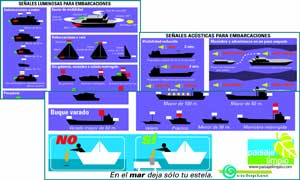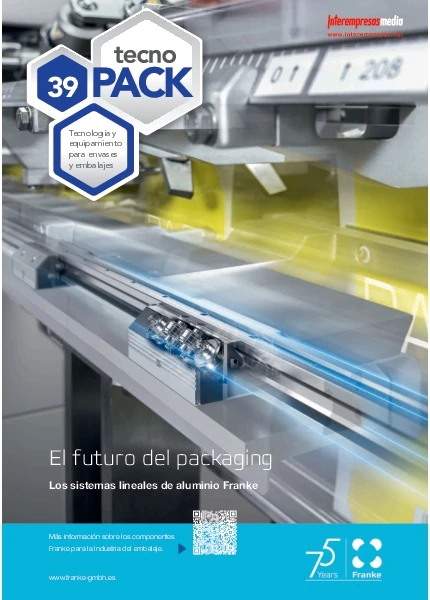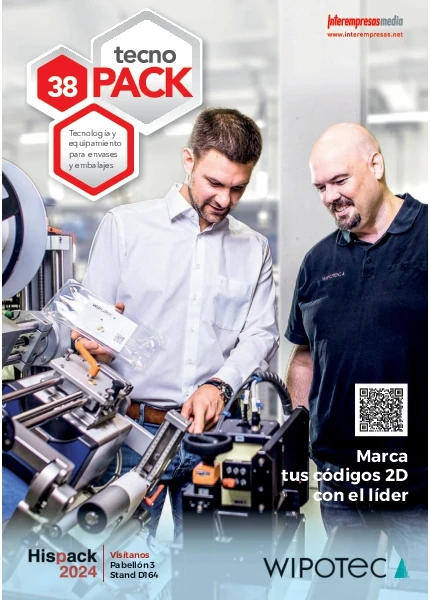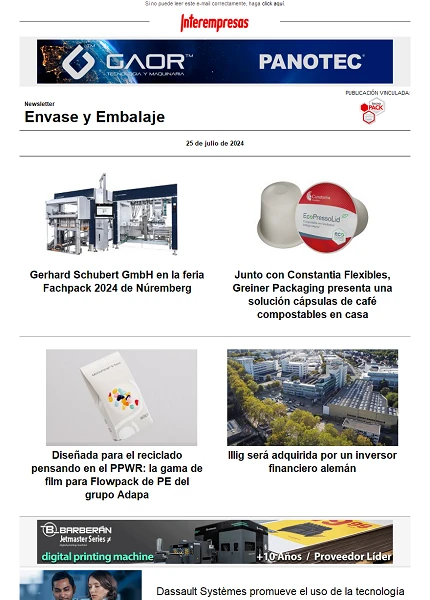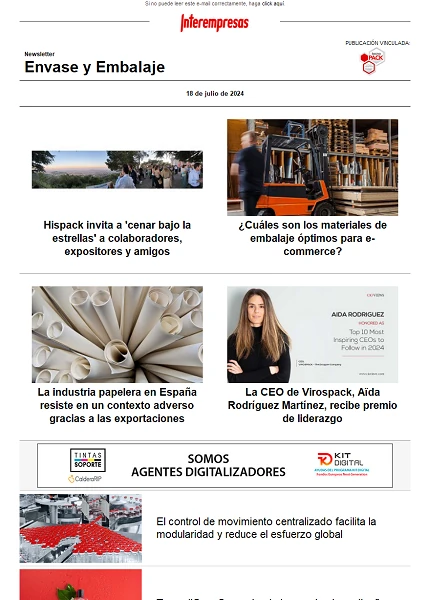Education in responsible consumption, reuse, recycling and not neglect is the key to avoiding the litter bags

What is your opinion deserve you the measures adopted in the Plan just announced in relation to the bags for use in shops?
In Cicloplast we believe that the best way to act on prevention is, without a doubt, implementing public awareness campaigns to promote responsible consumption, prevent waste and promote reuse of bags.
But that is not enough, we must give means to the citizen that contribute to the recycling of bags at the end of its useful life and inform you of their availability.
Education in responsible consumption, reuse, recycling and not neglect is the key to avoiding the litter bags
Jaime Alejandre statements in the newspaper El País qualify as "highly polluting" bags. That are made? of some toxic material?
But then where is the problem?
The problem is the inappropriate behaviour of who deposit bags in inappropriate places.
All we are concerned about the phenomenon of the "litter" of uncontrolled abandonment of waste of any kind, but this is the case, not only with the bags, but also with butts, the chewing gum, cans, jars, etc.
Until that point concerned the plastic sector about the phenomenon of the "litter"?
In clean landscape began last year at nautical schools and sports clubs a specific campaign which was very successful under the motto "In the Sea leaves only your trail" on the plastic bags to avoid that they are thrown into the sea.
Has made Cicloplast some campaign that they reuse and recycle more plastic bags?
That Convention referred exclusively to plastic bags and resulted in the beginning of a campaign under the four messages: responsible consumption, reuse, recycling and not abandonment, campaign which we would like to continue this year.
"Recycle me, do not let me go." "Take me to the yellow container" was the motto of our campaign that still can be printed on the bags of shopping malls. Campaign with the institutional support of the Ministry of the environment.
When speaking of recycling of bags I have the impression that not everyone knows how to recycle them. Could you explain it?
Other items such as bags of trash, Jerry cans, profiles, etc. can be manufactured from such recycled material,
I like to emphasise that I reutilicemos not only bags as garbage bag that is very well, but also as a "bag of packaging", i.e. to hold lightweight containers that go to the yellow container. So we recycle both content (bottles, cans and briks) as the continent (the Stock Exchange itself).
But do in France or Italy they are considering measures similar to the Spain now with the bags?
It makes no sense, therefore, that in Spain is advocates legal measures of the consumption decreased when the solution is to encourage the use of the yellow container.It should remind the consumer which must be deposited in the yellow plastic bags.

The Plan of waste of the Ministry advocates the replacement of conventional bags by biodegradable bags do you think?
With a measure of this nature, the first thing I wonder is what study have relied in deciding that the biodegradable bags are better from an environmental point of view than conventional.
In theory, if we support the culture of recycling, the awareness to change habits and attitudes of consumers towards more responsible behaviour with its environment, it is not good that the consumer is despreocupe and have the perception that can do what I want, to pull anything, then already is biodegradará.
The photo and biodegradability are advisable for according to which cases and for certain circumstances.
In my opinion, it would be advisable to carry out a life cycle analysis comparing all forms and types of bags, to decide to where it is most advisable thus guide our actions in the environmental field.
Without an analysis of life cycle made in accordance with the requirements of independence which establishes the relevant ISO standard, cannot be said that a product is better than another, no more.
Also why force to the plastic will biodegrade? has someone stopped to think about forcing the glass to that degrade?
No, because everyone understands that it is recyclable. However, there remains the feeling among many consumers that the plastic is not.
Because the plastic is also recyclable. And it also helps us to recycle. We all know that the bag is the container ideal for transporting newspapers and cartons where we are going to the blue container or put the glass on the Green igloo.
"as a fuel in incineration with energy recovery"
At what levels of recycling of plastics we move? they are recycling in Spain plastic bags?
Compared to other European countries, the recycling of plastics in Spain is the level of the leaders in the field. We passed to France, for example, although we are under Germany.
Plastic bags are recycled in Spain thanks to the Green point system that offers the yellow container, both for depositing the bottles and other plastic containers, to plastic bags as part of the Green point.
A voluntary agreement between manufacturers, shops and Ecoembes signed in 1998 to finance recycling of bags at the end of its useful life.
The level of recycling of plastic bags in Spain is the highest in Europe. In other countries of the EU, have preferred to take advantage of the energy value of the bags and plastic films for use as fuel in incineration with energy recovery.
In Spain are recycling 21.4 per cent of the total signed up to the system of green point, which is approximately 100 percent of what reaches the plants of selection and the recyclers.
If they are not more recycled, it is because no more bags reach the yellow container.
A study conducted by Cicloplast in 2004, indicated us that 67 percent of the population reuse the bags as garbage bags, but in addition also pointed to a problem: widespread ignorance about the possibility of recycling plastic into the yellow container bags.
For this reason, should continue to work in information and public awareness campaigns.
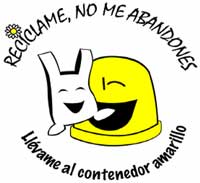
Do you plan to the plastics industry continue with the campaign for 2007?
We have prepared a campaign this year with the collaboration of Plastics Europe and Anaip, which is practiced through shopping centres, associations of consumers and housewives, environmental classroom of municipalities and workers of the enterprises themselves.
